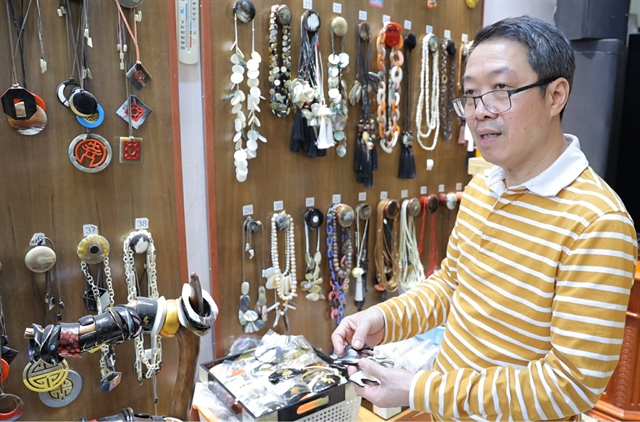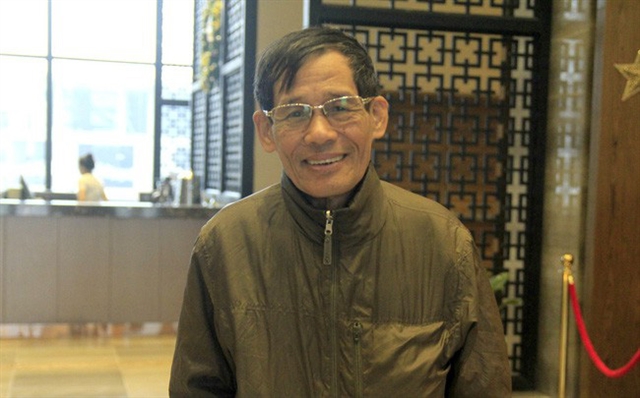 Life & Style
Life & Style

Documentary series Việt Nam Thời Đại Hồ Chí Minh - Biên Niên Sử Truyền Hình (Việt Nam in the Hồ Chí Minh Era - A Television History) is being shown on Việt Nam National Television.

|
| People's Artist Lê Thi |
Documentary series Việt Nam Thời Đại Hồ Chí Minh - Biên Niên Sử Truyền Hình (Việt Nam in the Hồ Chí Minh Era - A Television Chronicle) is being shown on Việt Nam National Television. The 90-episodes are made by different film crews but directed by People's Artist Lê Thi.
Nhân Dân Cuối Tuần (People's Weekend) reporter Luân Vũ spoke to the director about the series.
The series is made by different film crews. How do you balance the creativity and the unity of the long-episode series?
I worked directly with the crew leaders only. It helped me to find the link through the series and not to interfere to the creativity of filmmakers. The series covers all aspects of a long historical period and follow the chronology.
What difficulties did you encounter writing the script?
With important milestones such as the August Revolutionary in 1945; the Mậu Thân general offensive and uprising in spring 1968 and the Great Victory of 1975 Spring, we had to make two episodes for each.
The perspectives on these important events are reflected in the views of today.
We carefully considered and selected the points of these events that had a lasting impact on the country's development process.
Many historical documentaries have been shown on television. How can this stand out from the rest?
When I filmed Mùa Xuân Toàn Thắng (The Great Victory of Spring) in 1997 we did not have a lot of material.
In recent years, we have taken advantage of foreign archives. These are a huge source with vivid and perfect images. But it is easy to be misleading in film making progress because there is much information.
I have had the chances to make history-themed documentaries so I try to avoid using the same images and information from previous films.
We made great efforts to ensure the accuracy of the information which are reference to the foreign sources.
The accuracy of the material plays an important role in production. It is easy to make mistakes because the old documentaries are always a source for future filmmakers.
Does the length of the film pressurise you?
Yes, each episode of the series is about 30 minutes. When I agreed to be the director I thought firstly about the script. After discussions, we found a solution to make the film according to the event.
This approach made a difference compared to the previous films on the same topic and is also favourable for filmmakers.
However, the film making process is also flexible. The first part included five episodes entitled Khát Vọng Độc Lập Tự Do (Desire for Independence and Freedom) with a large content featuring the national independence and defence before the Việt Nam Communist Party was founded.
Since 1945, each episode is made with the timeline of each year. I am not sure if this approach will succeed. It depends on the reality when the movie is shown on television. But at least it makes a difference.
What made you decide to direct this project?
I have made several documentaries that summarise war. But I'm just a follower. Before me, People's Artist Trần Điền made the 90 minute-documentary entitled Cuộc Đối Đầu Lịch Sử (Historical Confrontation).
That film summarised the arduous but heroic journey of the Vietnamese people in the national resistance against the French and Americans.
The time to make the film is longer. Director Điền made that film without any material from foreign archives.
When I decided to direct this film, I was a little bit of worried. Compared to many previous documentaries, the viewing of historical issues and events has changed.
While we have many foreign sources, the Vietnamese archive is small and not good. We don't have good images because of the poor condition the film has been held in over the years.
Plus, I have made historical films so I was afraid of repeating myself and the audience has changed a lot. They are younger than those in the past and they don't want to listen one-sided opinions about history.
What does this film mean to your career?
For me personally this is an unusual topic but a special opportunity. Throughout directing the film I have had the opportunity to look back at the national history from a special period with a new and different perspective from the previous periods.
I have had a chance to work with veteran film crews and I contributed all my working experience in my career to this film. VNS




